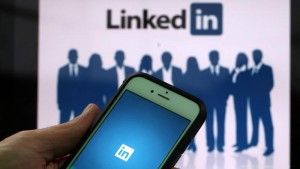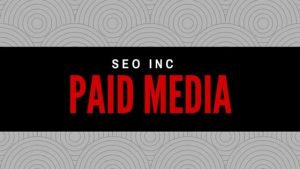
Branding to consumers certainly isn’t a new concept for businesses, but employer branding is a concept that’s emerging as incredibly important to today’s businesses to remain competitive.
As unemployment has ticked down in the U.S., many companies are facing what’s shaping up to be a big problem: a shortage of skilled talent. Talented professionals, and particularly those from the in-demand Millennial age bracket, are in short supply, and it’s becoming increasingly difficult to attract them as employees.
In 2014, 36% of global employers reported talent shortages, which was the highest figure since 2007. In a 2015 survey, 73% of CEOs said they were concerned about the availability of crucial skills.
Millennials have more education than any past generation, and they also like keeping their options open, which is leading many to job hop until they find the perfect fit, or to branch out on their on, either launching startups or working within the “gig economy” made up of freelancers and contractors.
With these increasing options, businesses are struggling to find creative ways to cultivate and maintain a strong employer brand appealing to all generations of talent employees, and in particular, Millennials.
With these 7 tips, companies large and small can get on a path to a stronger, more enticing employer brand that will provide them with the foundation needed to combat skills shortages in critical areas.
- Ensure Your Career Site is Mobile Responsive
Mobile responsiveness is no longer seen as “nice to have.” Instead, it’s an absolute necessity for business websites of all kinds, and that includes the career portal. Job seekers, particularly Millennials, are extremely likely to explore and potentially apply to your company via a mobile device, so ensure your site features a modern design that’s simple to navigate on both smartphones or tablets—otherwise you may be immediately written off by desirable talent.
- Train Current Employees to Be Brand Ambassadors
Your current employees are one of the biggest drivers behind your employer brand, and whether that’s a positive or a negative is up to you. Train your employees to serve as brand ambassadors to your organization, on social media channels and other highly visible places Millennial job seekers source on a regular basis. Get your employees excited about where they work, how they’re treated, and their potential career opportunities and they’re likely to spread that excitement. Marketing an employer brand to Millennials is much like traditional forms of marketing—they trust real recommendations far more than the claims being made by the brand itself.
- Create and Share Stories From Actual Employees
One employer marketing tactic that seems to have a positive impact on Millennials is the use of videos sharing real employee stories. It’s much like the tip above, but it goes deeper and formalizes the employee ambassador concept. Don’t give employees a script—let them share their authentic, honest viewpoints about what it’s like to work for your company. Let them show potential employees aspects they might not otherwise see on a jobs portal or even on social media.
- Use Instagram
Most businesses are already promoting their organizational culture through channels like Facebook and LinkedIn, but what about Instagram? Instagram is a great tool to give a fun, creative visual representation of what it is to truly work at a company. You can cultivate a sense of transparency and show authenticity, which is a core driver of Millennial employment decisions.
- Develop Methodologies for Dealing with All Applicants
Many businesses make the mistake of only giving consideration to how interviewees and new hire picks are treated during the recruitment process, and this can be a massive burden to your employer brand. Remember that the people who apply to open positions and may have interviews but aren’t hired are likely to be the most vocal about their experiences. Combat negative feelings by frequently communicating with all applicants, even those who aren’t going to make it in the next step of the process. Be upfront and let candidates know within a reasonable window of time their standing. Don’t leave it up in the air, or treat them in a way they could view as poorly because they can very quickly take their grievances to social media.
- Establish What You Want to Be Seen As
Not every company operates like Google, nor do they have the means to do so. At Google employment is about on-site yoga classes and outrageous workday perks, but most companies don’t have a culture like this, so there’s no need to try and portray your culture as something it isn’t. Before you start establishing an employer brand, have a clear idea of what you want to convey. That will help guide your decisions and the channels you use to connect with Millennial talent.
- Debrief Exiting Employees
Employees who are exiting your business can serve as a wealth of knowledge and information. Conducting an exit interview and debriefing can not only deliver insight but can also help you manage their perceptions. Before employees leave, whether because of being fired or quitting, sit down with them to gain more perspective as to their experiences, and how they feel things could change within the organization. They’re likely to give you more honest feedback about the employee experience than current workers, and it also gives you an opportunity to manage how they share their experiences on social media and through other channels that could impact your employer brand.
Strengthening Competitive Advantage Through Employer Branding
Regardless of your goals or the ways you work to create a strong employer brand, it’s ultimately one of the best ways to position yourself for future advancement and growth, through your ability to attract the very best in talent. With smart strategies and the goal of treating potential applicants and recruits in many of the same ways you would a customer, you can become a company that grabs the attention of talented Millennials.
Business & Finance Articles on Business 2 Community(40)
Report Post







